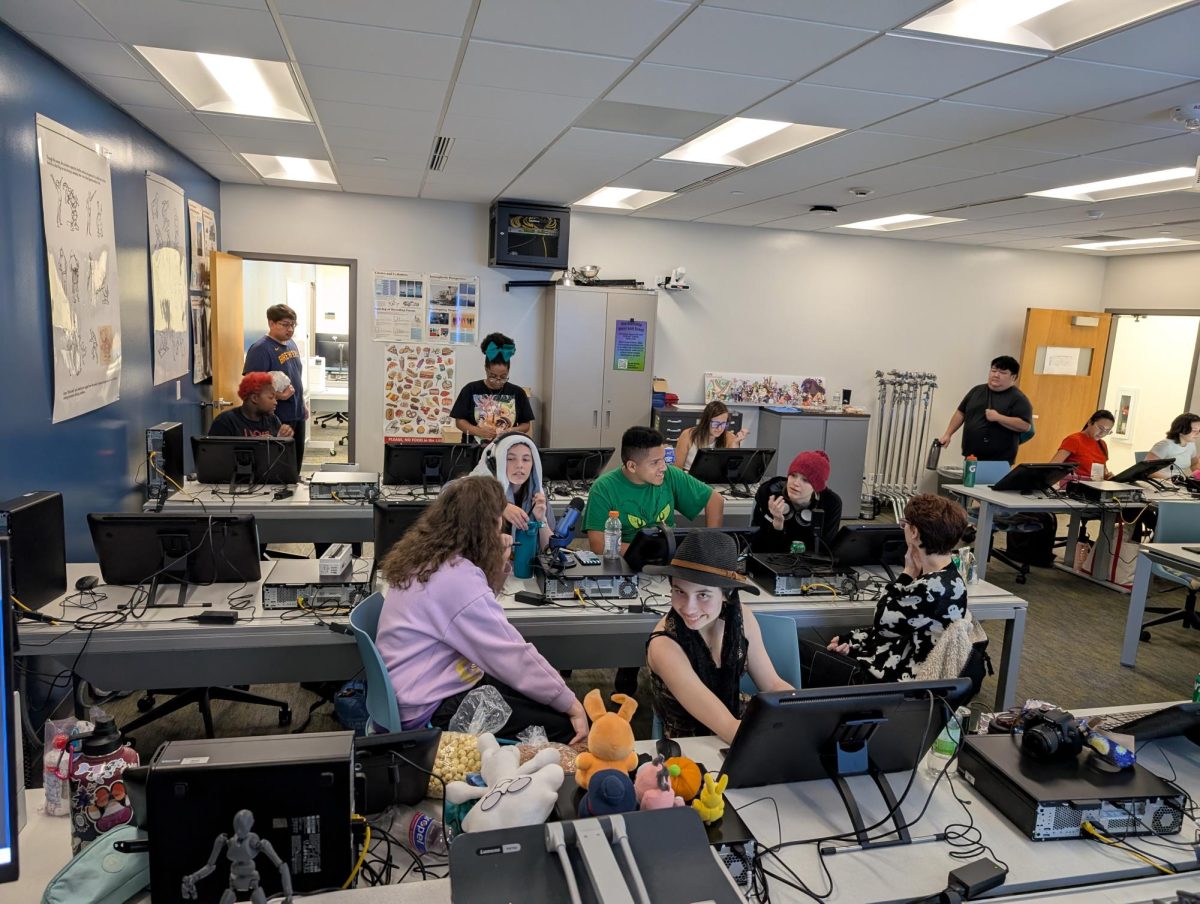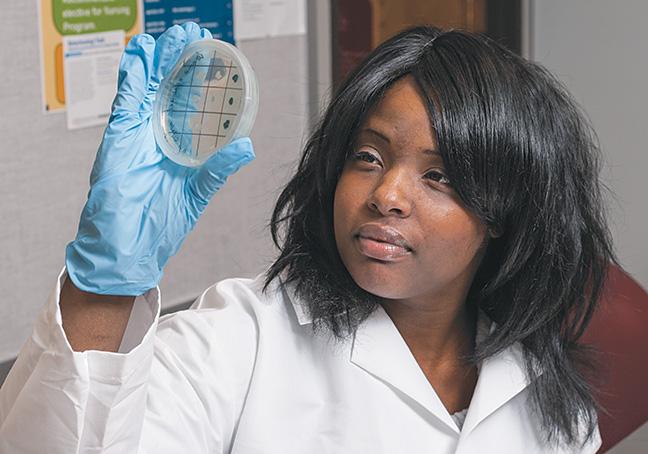Small, small world pays big, big bucks
Biomedical Electronics Technology associate degree
Photo by Greg Hornak/Times
Biotechnology student Amanda Carson carefully examines reagents from the Biotechnology club refrigerator.
Life in the biotechnology world of microscopes and petri dishes can lead to a very exciting, relevant career that pays big.
Cell behavior and manipulation leads to the development of new drugs for disease management and cures, more environmentally friendly cleaning agents, and better nutritional products or plant growth to feed the masses.
Spending your days in a lab monitoring experiments can provide the type of meaningful career satisfaction few jobs offer.
The use of living organisms to create practical products and solutions which meet the challenges in health care, nutrition and environmental arenas is all bio processing.
The end results affect all of our daily lives. Products like bread, cheese, beer, vitamins, shampoo, paint, and antibiotics are examples of the areas that we experience the effects of this industry. The students here at MATC in the Biotechnology programs have a real advantage to get into the industry, and in some cases are way ahead of advanced degree students.
One of the largest and most advanced student organizations functioning at the Downtown Milwaukee campus is the Biotechnology Network. Less than three years old, it has 50 to 65 members who enjoy the wonders of the world of microorganisms, and they are very successful in providing the members with current, relevant experiences including paid internships.
The club was recently invited to Madison College to attend a stem cell workshop.
Along with discussions on initial characterization of stem cells, they performed basic media transfer and aspiration techniques, conducted microscopy, imaging, basic characterization techniques of Pluripotent Stem Cells (PSC) and much more.
“This kind of exposure is why the club members have been getting paid summer internships, and our students are in high demand,” said Amanda Carson, vice president of the Biotechnology club. Having a passion for atoms and molecules, patience, great study habits, being good at multi-tasking, being a team player and being detail oriented are all traits that will ensure success in this career.
According to the Bureau of Labor Statistics, the biotechnology job market has grown more than 30 percent. Of the top 10 positions in the industry the median salary range is $88,000 on the low end to $173,000 on the high end.
MATC offers two associate degree programs, and one certificate which can be completed in one year. The Biotechnology track provides the first two years of a bachelor’s degree and emphasis is placed on preparation for a great foundation leading to that four-year degree.
The Biomedical Electronics Technology associate degree prepares students for a technical career that repairs or manufactures biomedical electronic equipment.
The Biotechnology certificate program focuses on hands-on, competency-based instruction designed to prepare students for entry-level positions.

A naturally nosey person, JoAhne Penney has enjoyed finding out what is going on, and telling others all of her life. She has been out of school for decades,...





























































